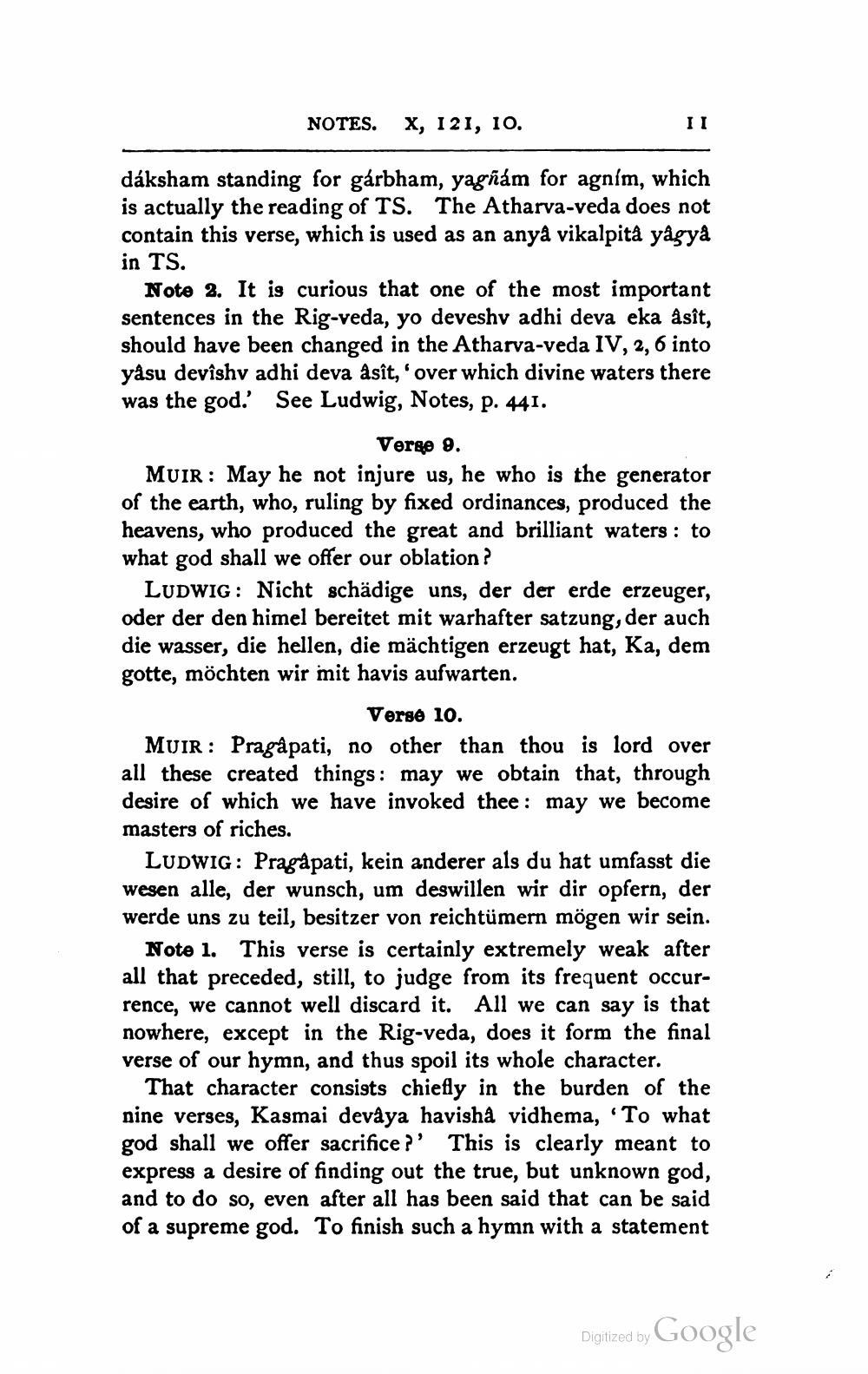________________
NOTES.
X, 121, 10.
II
dáksham standing for gárbham, yagñám for agním, which is actually the reading of TS. The Atharva-veda does not contain this verse, which is used as an anyå vikalpitå yågyå in TS.
Note 2. It is curious that one of the most important sentences in the Rig-veda, yo deveshv adhi deva eka asît, should have been changed in the Atharva-veda IV, 2,6 into yâsu devishv adhi deva asît, over which divine waters there was the god.' See Ludwig, Notes, p. 441.
Verge 9. MUIR: May he not injure us, he who is the generator of the earth, who, ruling by fixed ordinances, produced the heavens, who produced the great and brilliant waters : to what god shall we offer our oblation?
LUDWIG: Nicht schädige uns, der der erde erzeuger, oder der den himel bereitet mit warhafter satzung, der auch die wasser, die hellen, die mächtigen erzeugt hat, Ka, dem gotte, möchten wir mit havis aufwarten.
Verse 10. MUIR : Pragàpati, no other than thou is lord over all these created things: may we obtain that, through desire of which we have invoked thee: may we become masters of riches.
LUDWIG: Pragapati, kein anderer als du hat umfasst die wesen alle, der wunsch, um deswillen wir dir opfern, der werde uns zu teil, besitzer von reichtümern mögen wir sein.
Note 1. This verse is certainly extremely weak after all that preceded, still, to judge from its frequent occurrence, we cannot well discard it. All we can say is that nowhere, except in the Rig-veda, does it form the final verse of our hymn, and thus spoil its whole character.
That character consists chiefly in the burden of the nine verses, Kasmai devaya havisha vidhema, 'To what god shall we offer sacrifice?' This is clearly meant to express a desire of finding out the true, but unknown god, and to do so, even after all has been said that can be said of a supreme god. To finish such a hymn with a statement
Digitized by Google




